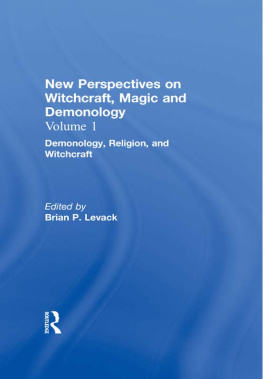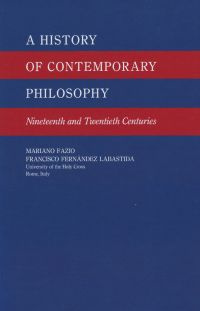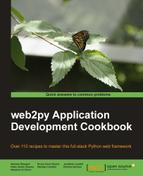Roberto Beneduce, MD, PhD, anthropologist and psychiatrist, is Professor of Medical and Psychological Anthropology at the University of Turin (Department of Culture, Politics and Society) and Director of the Frantz Fanon Center, Turin. His research engages various intellectual fields, including social violence and the current religious imaginaries, witchcraft and traditional medicine in Sub-Saharan Africa (Mali, Cameroon, and Mozambique), migration and refugee issues, and the history of ethnopsychiatry. More particularly, his research aims at connecting traumatic past and current experience of dispossession with witchcraft ideology and ritual healing in Sub-Saharan Africa. He is the author of various books and essays published in international journals. Among his recent works: Traumatic pasts and the historical imagination: Symptoms of loss, postcolonial suffering, and countermemories among African migrants (Transcultural Psychiatry, 2016); LHistoire au corps. Mmoires et archives incorpors dans les cultes de possession en Afrique (Fribourg: Academic Press, Studia Instituti Anthropos, 2016); Corpi e saperi indocili. Guarigione, stregoneria e potere in Camerun (Torino: Bollati Boringhieri, 2010); Fantasmagories de la cure. Images de rdemption, routinisation de la vision et textes cachs dans les thrapies rituelles (Cahiers dtudes Africaines, 2013); Un imaginaire qui tue. Rflexions sur sorcellerie, violence et pouvoir (Cameroun, Mali), in Sorcellerie, violence et pouvoir en Afrique, edited by J. Bouju and C. Martinelli (Paris: Karthala, 2012); Soigner lincertitude au Cameroun. Le thtre pique du nganga face aux dfis de la professionnalisation et aux conomies du miracle, in Le pluralisme mdical en Afrique: hommage ric de Rosny, edited by Ludovic Lado (Paris: Karthala, 2010).
Andrea Ceriana Mayneri is a researcher at the French National Centre for Scientific Research (CNRS) and a member of the Institut des mondes africains (IMAF). He received his PhD in anthropology from the Aix-Marseille University in France (2010) and has been postdoctoral fellow at the Laboratory for a Prospective Anthropology (University of Louvain-la-Neuve, Belgium), at the cole des Hautes tudes en Sciences Sociales in Paris, at the Museum of Quai Branly in Paris. Andrea Ceriana Mayneri has published book chapters and journal articles about the Central African Republic and the propagation of witchcraft beliefs and antiwitchcraft practices. He is notably the author of Sorcellerie et prophtisme en Centrafrique: limaginaire de la dpossession en pays banda (Paris: Karthala, 2014). Ceriana Mayneri is currently working in Chad in the capital city NDjamena and among Central African refugees.
Osvaldo Costantini received his PhD from Sapienza University of Rome. He carried out research among Eritrean and Ethiopian Pentecostals in Rome. His focus is on the ways in which Pentecostal language allows people to confront the difficulties and the uncertainties of their lives within a new context and the relationship between conversion to Pentecostalism and the hostile past of the two countries. Among his recent works: Rifugiati politici eritrei a Roma. Retoriche del trauma, discorso umanitario e strategie quotidiane di rappresentazione (AM Rivista Italiana della Societ di Antropologia Medica, 2012); Quando sono partito io. Memoria individuale e memoria collettiva nei racconti di viaggio dei rifugiati eritrei (Archivio Antropologico del Mediterraneo, 2012); An informal way to social protection (in Cultural Landscapes of Ethiopia: Conference Proceedings, edited by D. Narendra et al. Mekelle: Mekelle University Printing Press, 2015); And now I am Eritrean. Mobilization Strategies and Multiple Sense of Belonging between Local Complexity and Global Immobility (in Bounded Mobilities. Ethnographical Perspectives on Social Hierarchies and Global Inequalities, edited by I. Gotz et al., 2015, forthcoming); I have not mental problems: I believe in Jesus Christ. Malattia mentale, certificati e status di rifugiato: il caso di un richiedente asilo eritreo pentecostale (AM Rivista Italiana della Societ di Antropologia Medica, 2015).
Angelantonio Grossi received his Masters Degree in anthropology at Sapienza University of Rome. Interested in digital media, cosmopolitanism and the North-South relationship, Angelantonio Grossi conducted a digital ethnographic fieldwork in Accra. His dissertation concerned the political and religious aspects of the Internet in Ghana.
Mariano Pavanello has taught ethnology, social anthropology and Africanistics in the University of Pisa (19772003) and Sapienza of Rome (20042013) where he was Head of the Department of History, Cultures, Religions from 2010 to 2013. He carried out fieldwork in many African countries since 1973; his more important field research was among the Nzema of Ghana (19892013). Mariano Pavanello is the author of various books, among which:














